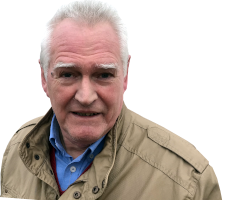search
date/time
 | Yorkshire Times A Voice of the Free Press |

Mike Tilling
Arts Correspondent
11:36 AM 12th August 2023
arts
Review
Classical Music: Bernard Herrmann
Bernard Herrmann
Suite from Wuthering Heights*; Echoes for Strings**
Keri Fuge Soprano (Cathy, Soprano Voice)
Roderick Williams Baritone (Heathcliff)
Singapore Symphony Orchestra - Mario Venzago* Joshua Tan **
Leaders: Stanislav Pronin* and Chan Yoong-Han ** Ng Pei-Sian principal cello
Chandos CHSA 5337
https://www.chandos.net/
Suite from Wuthering Heights*; Echoes for Strings**
Keri Fuge Soprano (Cathy, Soprano Voice)
Roderick Williams Baritone (Heathcliff)
Singapore Symphony Orchestra - Mario Venzago* Joshua Tan **
Leaders: Stanislav Pronin* and Chan Yoong-Han ** Ng Pei-Sian principal cello
Chandos CHSA 5337
https://www.chandos.net/

First visits to The Odeon saw me in awe of film stars, and, because I was a fan of Westerns, it was Jimmy Stewart and John Wayne (females were far too scary – Maureen O’Hara?). Jane Russell? (Not in the realms of possibility for a boy from Hull). Next, somebody pointed out that you needed to know about directors, so the natural choices were John Ford and Raoul Walsh.
It was only much later that I came to understand the role of the film score. Westerns again, but this time it was Ennio Morricone’s music for the Dollar Westerns.
Somewhere along this path, I had picked up Bernard Herrmann’s staccato strings supplementing stab wounds in Hitchcock’s Psycho and then the ominous insistence of the title sequence of North by Northwest.
Clearly, Herrmann had a lasting relationship with Hitchcock. Equally apparent was the quality of his music, but, like many talented artists who find themselves restricted by a label, he longed to reach beyond the status quo.
Given this history, perhaps you can imagine my surprise when I discovered that Herrmann’s Wuthering Heights was not a score for one of the many films. Personally, I had always found film scores to be much more accessible and entertaining than the generality of the music being played in concert halls at the time.
The result of Herrmann’s desire to be taken more seriously was an opera based on Emily Bronte’s novel, and here we have a suite (arranged by Hans Sørensen).
The Suite is considerably shorter than its progenitor, but we get a sense of what the full version must have been like.
The opening bars offer a foretaste of what is to come: drum rolls and urgent woodwinds interspersed with more reflective moments in the strings. He captures not only the turbulence of Cathy and Heathcliff’s love affair but also the savagery of the landscape and the weather.
Actors attempting to capture the character of Heathcliff have often failed, whether in the cinema or on TV. It is a very physical role—surely a quality that must have been attractive to the fictional Catherine. But not every actor can pull it off. I have never seen Roderick Williams, but I have the feeling from his voice that he would have the potency to do a convincing job of the role.
Sensibly, arranger Sørensen focuses solely on Heathcliff and Catherine’s intense love affair - surely the major reason for reading the novel at all. So far as I can tell, he adheres to Herrmann’s original intentions with a large orchestra, conducted by Mario Venzago, that contrasts, but certainly does not overwhelm, the two voices.
Unless Herrmann revelled in the mere composition of the piece, it must have been a considerable disappointment that it was not staged in his lifetime, although a complete recording was made in 1966.
Further value for money is afforded by the addition of Herrmann’s Echoes for Strings. Echoes of what? Could it be that Bernard Herrmann is using this piece to reflect on his time as a film composer when he is in this, his more ‘serious’, mode?